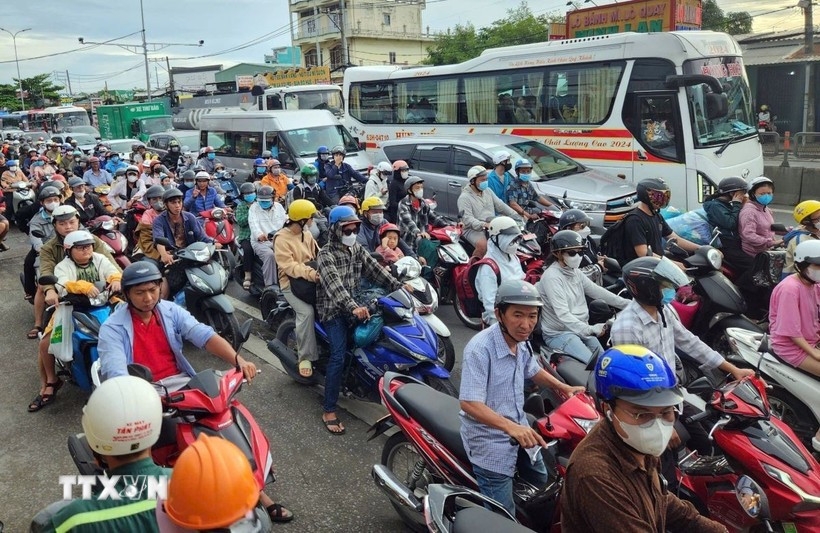Residents pin hopes on low-emission zones for cleaner air
Ho Chi Minh City is preparing to pilot low-emission zones (LEZ) in the central area, Can Gio, and Con Dao, a step that has drawn significant public attention as it directly affects health and quality of life while laying the groundwork for a citywide emissions control roadmap.

For many residents, the greatest expectation from LEZs is cleaner air. Vehicle exhaust has long been a pressing environmental issue for the city. Under current plans, by 2030 HCM City will have around 11.4 million motorcycles and 1.3 million cars.
Traffic is now the dominant source of air pollution, accounting for 88% of NOx, 99% of CO, 79% of SO₂, and 88% of fine dust emissions. Without effective measures, transport-related pollution is expected to continue harming public health and cause annual economic losses of over VND3 trillion (US$133.6 million), or roughly 0.25% of the city’s GRDP.
Environmental monitoring shows that the city’s annual average PM2.5 concentration stands at 31 µg/cbm, more than six times the limit recommended by the World Health Organisation. Vehicle emissions contribute about 40% of this fine dust.
Thu Huong, a resident of Binh Thanh ward, expressed hope that the LEZ plan will help ease the burden on local residents. She added that unless motorbike and car use is curbed, congestion will persist. Expanding investment in electric buses and public transport, she noted, would improve air quality, reduce congestion, and enhance quality of life.
Other residents also expect greener and more convenient transport options. Quoc Thang from Thu Duc ward said he would readily switch from motorbikes if electric buses were clean, fast, and affordable.
However, some stressed that the success of LEZs depends on public transport improvements. Nguyen Van Binh from Sai Gon ward remarked that people are unlikely to change unless alternatives meet their daily needs, underlining the importance of developing a modern public transport system to reduce reliance on personal vehicles.
Binh further noted that LEZ policies should go beyond restrictions or bans, and include financial support, job creation, and economic adjustments to secure public backing. He said only such measures would allow the transition to green transport to gain broad acceptance.



